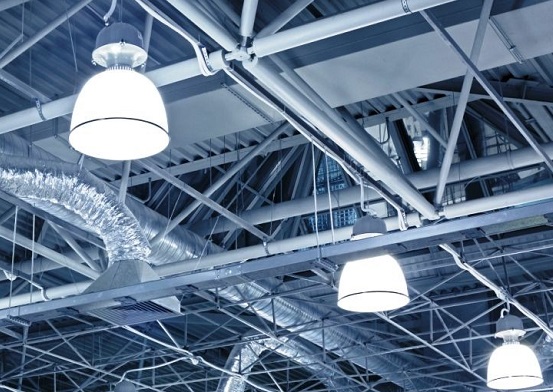M&E
Contents |
[edit] What does M&E mean in the construction industry?
In the construction industry, the term 'M&E' means 'mechanical and electrical'. It may be used to refer to mechanical and electrical systems, or mechanical and electrical engineers, mechanical and electrical drawings and so on.
[edit] What are mechanical and electrical systems?
Mechanical systems can include elements of infrastructure, plant and machinery, tool and components, heating and ventilation and so on.
For more information see: Mechanical engineer.
Electrical systems might include, power supply and distribution, telecommunications, computing instrumentation, control systems and so on.
For more information see: Electrical engineer.
Clearly there is a great deal of overlap, with many systems including both mechanical and electrical components, hence the term M&E.
[edit] What qualifications do M&E engineers have?
There are both mechanical and electrical engineering professionals who specialise in M&E. M&E engineers will often hold a degree in mechanical, electrical or M&E engineering. There are also combined mechanical and electrical engineering courses are available, with joint accreditation between the Engineering Council, Institution of Engineering and Technology (IET) and Institution of Mechanical Engineers. Chartered Engineer status can be awarded through the Chartered Institution of Building Services Engineers.
There are a large number of specialist M&E subcontractors and suppliers, and many of the bigger main contractors will have their own M&E divisions. A great deal of integration and co-ordination is required and designs are often a collaboration between consultants, contractors and specialists. This can cause problems where there are a number of separate disciplines, packages and suppliers, with no one party taking overall responsibility for co-ordination.
[edit] What is the difference between M&E and building services?
The terms 'M&E' and 'M&E engineer' are often taken as interchangeable with the terms 'building services'/ 'building services engineer'.
Building services are the systems installed in buildings to make them comfortable, functional, efficient and safe and might include:
- Building control systems.
- Energy distribution.
- Energy supply (gas, electricity and renewable sources such as solar, wind, geothermal and biomass).
- Escalators and lifts.
- Facade engineering (such as building shading requirements).
- Fire safety, detection and protection.
- Heating, ventilation and air conditioning (HVAC).
- Information and communications technology (ICT) networks.
- Lighting (natural and artificial).
- Lightning protection.
- Refrigeration.
- Security and alarm systems.
- Water, drainage and plumbing (including sustainable urban drainage systems (SUDS)).
- Carbon emissions calculations and reduction.
However, mechanical and electrical engineering can be a wider field than this, including areas beyond building design and construction, such as; large-scale power generation and transmission, transportation systems, infrastructure controls, industrial installations and so on.
For more information see: Building services engineer.
[edit] Related articles on Designing Buildings
- Air conditioning.
- Air handling unit.
- BSRIA.
- Building engineering physics.
- Building services.
- Building services engineer.
- CIBSE.
- Electrical engineer.
- Engineer.
- Institution of Mechanical Engineers.
- Mechanical engineer.
[edit] External references
Featured articles and news
BSRIA Statutory Compliance Inspection Checklist
BG80/2025 now significantly updated to include requirements related to important changes in legislation.
Shortlist for the 2025 Roofscape Design Awards
Talent and innovation showcase announcement from the trussed rafter industry.
OpenUSD possibilities: Look before you leap
Being ready for the OpenUSD solutions set to transform architecture and design.
Global Asbestos Awareness Week 2025
Highlighting the continuing threat to trades persons.
Retrofit of Buildings, a CIOB Technical Publication
Now available in Arabic and Chinese aswell as English.
The context, schemes, standards, roles and relevance of the Building Safety Act.
Retrofit 25 – What's Stopping Us?
Exhibition Opens at The Building Centre.
Types of work to existing buildings
A simple circular economy wiki breakdown with further links.
A threat to the creativity that makes London special.
How can digital twins boost profitability within construction?
The smart construction dashboard, as-built data and site changes forming an accurate digital twin.
Unlocking surplus public defence land and more to speed up the delivery of housing.
The Planning and Infrastructure Bill
An outline of the bill with a mix of reactions on potential impacts from IHBC, CIEEM, CIC, ACE and EIC.
Farnborough College Unveils its Half-house for Sustainable Construction Training.
Spring Statement 2025 with reactions from industry
Confirming previously announced funding, and welfare changes amid adjusted growth forecast.
Scottish Government responds to Grenfell report
As fund for unsafe cladding assessments is launched.
CLC and BSR process map for HRB approvals
One of the initial outputs of their weekly BSR meetings.
Building Safety Levy technical consultation response
Details of the planned levy now due in 2026.
Great British Energy install solar on school and NHS sites
200 schools and 200 NHS sites to get solar systems, as first project of the newly formed government initiative.
600 million for 60,000 more skilled construction workers
Announced by Treasury ahead of the Spring Statement.



























Comments
[edit] To make a comment about this article, click 'Add a comment' above. Separate your comments from any existing comments by inserting a horizontal line.
Really helpful explanation thanks.